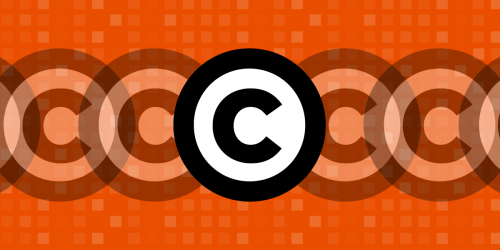Months of aggressive lobbying by the MPAA and its allies at the Copyright Office gave them the result they desired
Update: a timeline of events based on the Copyright Office e-mails is here.
In the current debate over cable set-top box competition, content and cable industries worked together to oppose regulation that could potentially weaken their control over personal TV hardware and software. We were surprised, though, to see the U.S. Copyright Office echoing Hollywood’s flawed legal arguments.
Why did the Copyright Office jump into this fight on the side of TV producers? To find out, EFF filed a Freedom of Information Act (FOIA) request to the U.S. Copyright Office. Yesterday, the Office sent us 310 pages of correspondence that gave a pretty clear answer: for months the Motion Picture Association of America and its allies, representing major TV and movie studios, aggressively lobbied the Copyright Office to take sides in the set-top box debate. Meanwhile, it appears that the Office made no attempt to seek other views, whether from independent manufacturers, technologists, or consumers. In fact, Copyright Office officials only spoke to competitive manufacturers after the Office’s opinion letter to the FCC and Congress was already written.
The Copyright Office has come under scrutiny for alleged systemic bias in favor of major media and entertainment companies to the detriment of Internet users, technology companies, and independent creators. These documents received by EFF yesterday do nothing to dispel that concern.
After the FCC announced its intention to break up the set-top box monopoly in February of this year, MPAA quickly called on the Copyright Office to meet on the matter. The documents indicate that the first meeting the Copyright Office held on the set-top box issue was not with the FCC but rather the MPAA. Although both the FCC and MPAA reached out to the Copyright Office in late March, Copyright Office officials met with MPAA on April 11 while postponing and meeting with the FCC a week later. Throughout the spring and summer of this year, the Copyright Office alternated between meetings with the FCC, MPAA, and other major content companies such as Comcast and Viacom. On May 31, just hours after holding a conference call with MPAA, the general counsel of Copyright Office emailed her counterpart at the FCC saying “the proposed rule may in fact implicate some rather serious copyright concerns.”
Allies in Congress also reached out to the Copyright Office during the summer. On June 17, a staffer for Congressman Ted Deutch wrote to the Copyright Office, offering to write a formal request for the Office’s opinion on the set-top rules. The premise of the email was that the Congressman was told that Maria Pallante, who was then the head of the Copyright Office, had “expressed a willingness to weigh in on the set top box issue” but would need a Member of Congress to ask first. While the Copyright Office staff indicated internally that they do not invite such requests and were confused by the email, they ultimately did weigh in against the set-top box proposal on August 3rd in response to a formal request sent in mid-July by four Members of Congress including Congressman Deutch.
It seems that despite holding itself out as a neutral expert agency on copyright matters, the Copyright Office regularly engaged in discussions with only one set of parties as it formed its opinion. Not once did the agency reach out to the copyright scholars who explained to the FCC that no copyright interests were harmed by the set-top box proposal. Nor did the agency rethink its position when these same parties made clear that what they want is for the FCC to create new legal rights for them that have nothing to do with copyright law. The Copyright Office did eventually meet with a group of companies who are seeking to build competitive set-top boxes that consumers can buy, but that meeting happened on August 2, just one day before the Office issued its public statement. And that statement gives short shrift to the technology companies’ concerns.
When the U.S. Copyright Office waded into the debate, it could have brought an end to the misleading handwringing over copyright. Instead, it did the opposite by echoing the MPAA and cable companies, claiming that if cable operators were required to allow customers to use the devices of their choice to view the programs they pay for, the studios’ copyrights would somehow be violated. They even went so far as to say the current copyright law landscape is insufficient and therefore the FCC must do more to protect rightsholders.
An agency that listens only to the views of some industry groups without seeking out additional opinions cannot be a reliably neutral expert for Congress or the FCC. We hope that the FCC will weigh the Copyright Office’s comments appropriately, and resist efforts to derail the agency's work to end the set-top box monopoly. EFF may not support every provision of the final version of the FCC's rulemaking, but we oppose efforts by incumbent industries to use copyright law as a cover to assert improper control over the future of technology.
The entire FOIA response is available here.
Update: A timeline of events based on the Copyright Office e-mails is available here.








